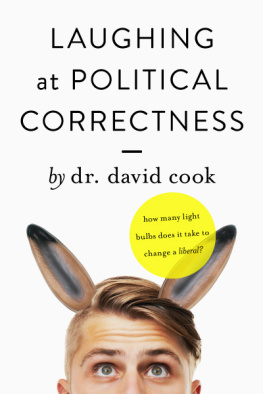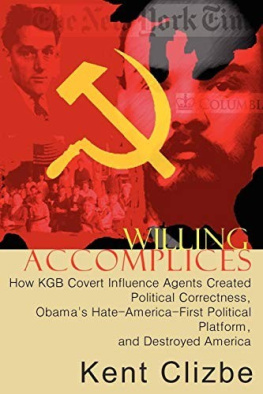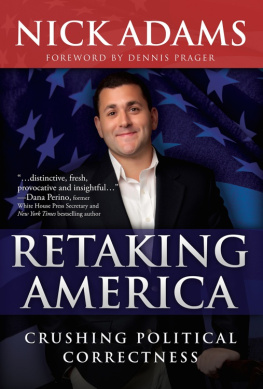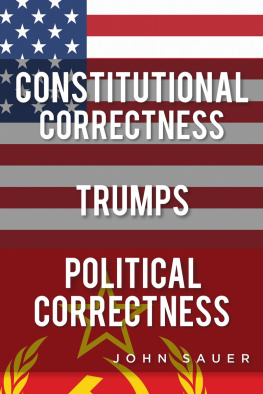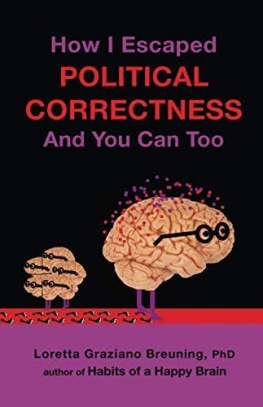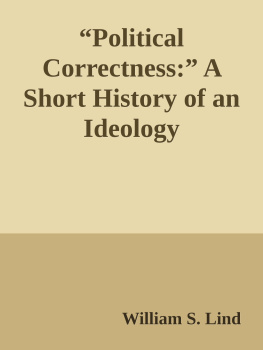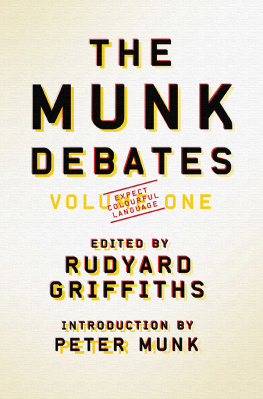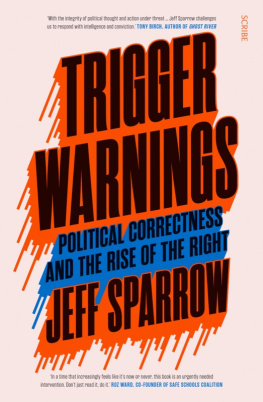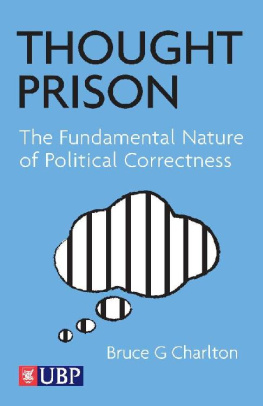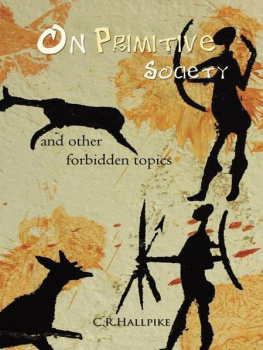After Political Correctness
POLITICS & CULTURE
Avery Gordon and Michael Ryan, editors
Politics and Culture is a serial publication that will publish material from a diverse number of disciplinary perspectives, from literature to law, from anthropology to political science, from cultural studies to sociology. The serial is concerned with the political significance of cultural forms and practices as well as with the cultural character of social institutions and political formations.
After Political Correctness: The Humanities and Society in the 1990s, edited by Christopher Newfield and Ronald Strickland
Body Politics: Disease, Desire, and the Family, edited by Michael Ryan and Avery Gordon
FORTHCOMING
Prosthetic Territories: Politics and Hypertechnology, edited by Gabriel Brahm Jr. and Mark Driscoll
POLITICS AND CULTURE
AFTER POLITICAL CORRECTNESS
The Humanities and Society in the 1990s
edited by
CHRISTOPHER NEWFIELD & RONALD STRICKLAND
Politics and Culture 2
First published 1995 by Westview Press
Published 2018 by Routledge
711 Third Avenue, New York, NY 10017, USA
2 Park Square, Milton Park, Abingdon, Oxon OX14 4RN
Routledge is an imprint of the Taylor & Francis Group, an informa business
Copyright 1995 Taylor & Francis
All rights reserved. No part of this book may be reprinted or reproduced or utilised in any form or by any electronic, mechanical, or other means, now known or hereafter invented, including photocopying and recording, or in any information storage or retrieval system, without permission in writing from the publishers.
Notice:
Product or corporate names may be trademarks or registered trademarks, and are used only for identification and explanation without intent to infringe.
Library of Congress Cataloging-in-Publication Data
After political correctness: the humanities and society in the 1990s
/ edited by Christopher Newfield & Ronald Strickland.
p. cm. (Politics and culture)
ISBN 0-8133-2336-3 ISBN 0-8133-2337-1 (pbk.)
1. Humanities. 2. HumanitiesPolitical aspectsUnited States.
3. Political correctnessUnited States. 4. Education, Higher
Political aspectsUnited States. I. Newfield, Christopher.
II. Strickland, Ronald. III. Series.
AZ221.A38 1995
001.3dc20
94-33692
CIP
ISBN 13: 978-0-8133-2337-4 (pbk)
Contents
PART ONE
THE GENEALOGY OF THE ANTI-PC AGENDA
PART TWO
RESPONDING TO THE ANTI-PC ATTACKS
PART THREE
AFTER PC: REDESIGNING DISCIPLINES AND INSTITUTIONS
Introduction: Going Public
CHRISTOPHER NEWFIELD & RONALD STRICKLAND
AFTER POLITICAL CORRECTNESS DEVELOPED out of our belief that the attack on political correctness in the humanities was also the humanities biggest opportunity in years. Though conservatives managed to taint entire academic disciplines, the aroused media attention marked an opening for the academic intellectual. Though university humanists went from irrelevant to dangerous overnight, the PC controversies rejuvenated debate over the purposes of higher education. Though hostile attention is rarely better than none, this time it signaled vulnerability in a conservative cultural order that, during the Reagan Restoration, had seemed relatively secure.
This volume is part of a new phase in the debate among different visions of the humanities. Following the early PC attacks in late 1990, the Center and Left spawned truth squads to refute, rebut, and reject the Rights evidence and conclusions, especially those based on a few anecdotes trapped in a widening circuit of media repetition. These rebuttals were remarkably effective: The news of another side moved the PC conflict from accusation to debate, and mainstream interest faded to the letters pages of book reviews. The next phase, now unevenly under way, involves a broad spectrum of progressive humanists moving beyond temporary self-defense toward a greatly expanded public presence.
The essays in this collection offer a number of perspectives on the debate about political correctness, but they are most concerned with developing prospects for a more public humanities. The writers assembled here believe that the present task is looking forward and detailing the ways and means of moving ahead.
The most urgent project involves redesigning and expanding the social and cultural role of the academic humanities. But this project will be most successful when it more clearly accounts for the meanings and effects of the PC debates. The forces shaping the debate have not gone away, and many of our contributors detail the long-range social changes and underlying cultural shifts that were often dimly rendered, and inaccurately described, by the immediate controversy. PC retained a visible public presence during the first year of Bill Clintons administration, where it served as a one-size-fits-all brand name for a radicalism both dangerous and defunct. Thus PC played a key role in forcing Clinton to withdraw his nomination of law professor Lani Guinier to head the civil rights division of the Justice Department. A term once used to glamorize attacks on obscure progressives could now obligate a U.S. president to bow humiliatingly to a carefully fabricated ideological test unrelated to anticipated job performance. Clintons retreat also suggested that, by 1993, the PC attacks had acquired as much influence over the political center as over its original sponsors on the right.
Episodes like this suggest that the issues of PC politics and culture first raised in connection with humanities scholarship cannot be turned back into academic questions. The continuing power of the attacks on PC reveals the urgency of a widespread, passionate, collaborative reimagining of the humanities after the PC debates.
We think that reimagining the humanities will require a major revitalization of relations between the university humanities and various U.S. publics. At the moment, these relations are instructional (within the university), haphazard (with nonstudents), or controlled by our counterparts in think tanks and the media. Our crucial task within the humanities is to take active control of our relations to the rest of the world.
As this more public phase unfolds, numerous academic humanists will become public intellectuals by making their research relevant and accessible to general concerns. Cultural scholarship will stop playing a supporting role to policy experts on social questions and establish cultures independence. The university community will redress its own outdated administrative hierarchies and compartments and make itself a model of self-guided, democratic adaptation to new possibilities. Researchers will gain more support for their long-range, difficult, indispensable work by more fully explaining it to the taxpayer. Professors will expand the social influence of the humanities by improving links with related institutions such as state humanities councils, local arts boards, high schools, and policy institutes. Humanists will renegotiate their share of university resources with the sciences, to the benefit of underfunded areas of cultural research. Scholarly productivity will be shown the friend of good teaching. A diverse Left will be admitted alongside the mainstream and Right as a constructive participant in cultural and social debates. The media will demand not merely wider circulation for important professors but new applications of scholarly rigor to current affairs. Thousands of supporters of Bruins and Fighting Illini football will shift their donations to courses in cultural analysis.




